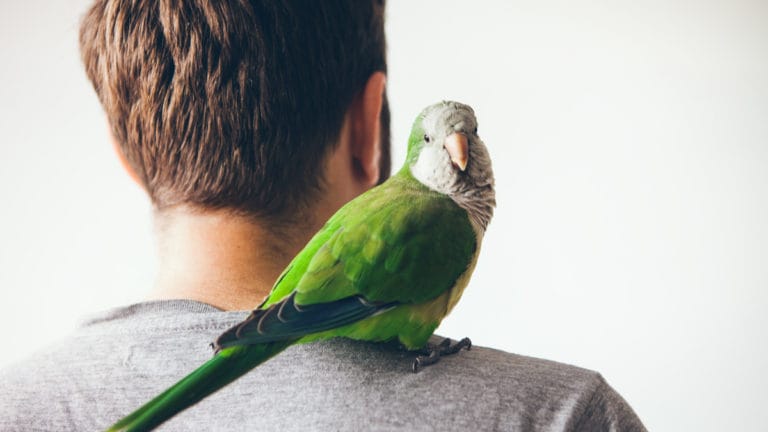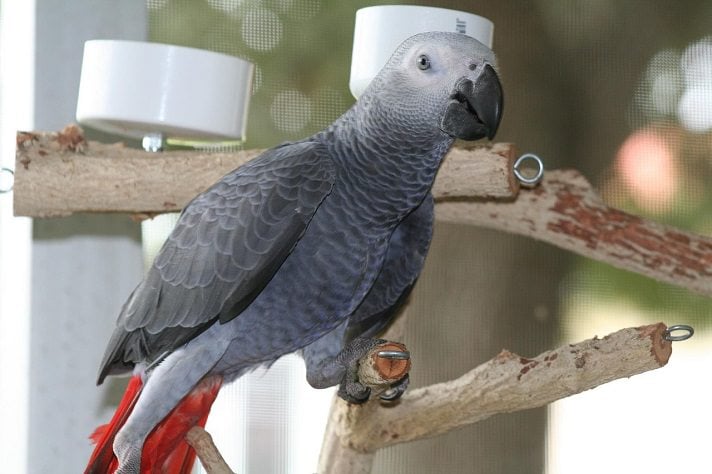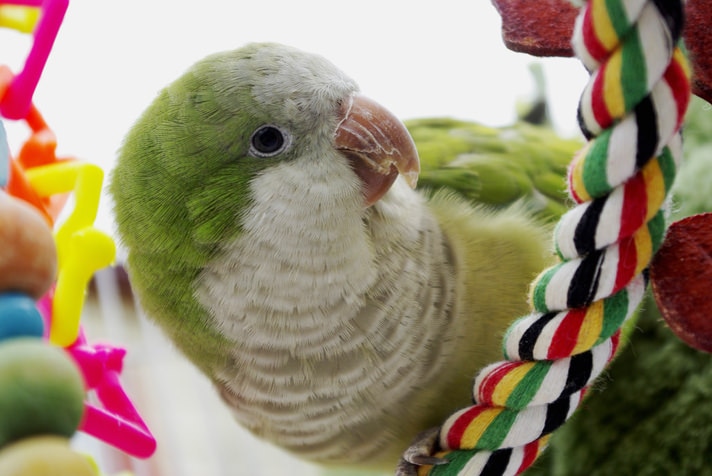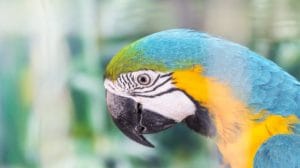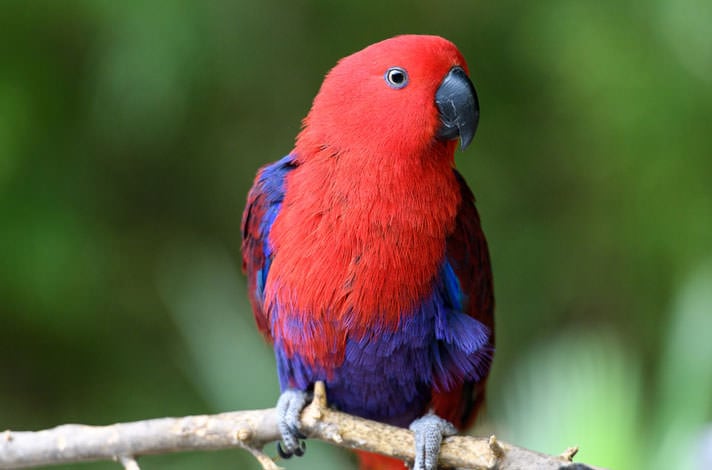Q:
I have a female blue-and-gold macaw that is 17 years old. I have only had her for about six months. She was given to me by some close friends. She seems very happy and healthy. For the first time, she has begun to lay several eggs over the last few weeks. Since she does not have a mate, they are obviously infertile. They drop to the bottom of her cage or perch and generally crack open. She appears somewhat protective of them at first, but then gets over it. Is this behavior normal for a hen? Should I be concerned about her diet (i.e. calcium etc.)? Any assistance or suggestions is appreciated. Thanks.
A:
In captivity, it is not abnormal for a mature macaw hen to lay eggs and protect her eggs. Yet it can be troublesome for people with pet birds. Therefore, you should closely examine her environment for what is encouraging her to lay eggs. Macaw hens confined to small cages might view their surrounding as a nesting area. By taking her beyond her reproductive comfort zone, you can help prevent further egg laying. When she is not cycling, take her for rides in the car or to the home of a bird-friendly acquaintance. If her wing feathers are recently trimmed or with the use of a leash and harness, she can go out for picnics or to a park. Only go to places that are safe for birds. Avoid dog parks or areas that are particularly noisy and active. Teach her some tricks and keep her busy to help draw her attention away from laying eggs. Move her cage to a different location each night so that she is less likely to ovulate.
Blue & golds often lay multiple clutches and produce too many eggs. She is less likely to lay another clutch if she sits on her eggs. Leave her eggs with her until she abandons them. Pad the area under the perch with clean straw or shredded newspaper to prevent the eggs from breaking. If an egg cracks, paint the cracks with clear nail polish or white glue to prevent bacteria from entering the egg. Discard any egg at the first signs of bacterial growth. If an egg breaks, replace it with a ceramic egg of similar size.
Macaw hens with poor muscle tone run the risk of becoming egg bound. Egg laying hens should be well muscled and eating a healthy diet. Although egg laying can deplete calcium and other nutrients from the body, it is risky to add vitamin supplements to her diet. If you add an overabundance of vitamins, the result can be vitamin toxicity. Your best chance of getting the correct balance of nutrients into her system is by feeding her a good breeder pellet. When she stops laying eggs, resume feeding her a maintenance diet. If she will not eat pellets, then increase the amount of vitamin- and calcium-rich foods in her diet. Broccoli and almonds are examples of foods rich in calcium, and broccoli has many other nutrients that are beneficial for egg laying hens.
There are medical treatments to manage excessive egg laying. I recommend that you take your bird to an avian veterinarian for a thorough examination and a discussion about how many eggs your macaw hen can safely lay.
Posted By: Chewy Editorial
Featured Image: Via Pixabay
Share:

